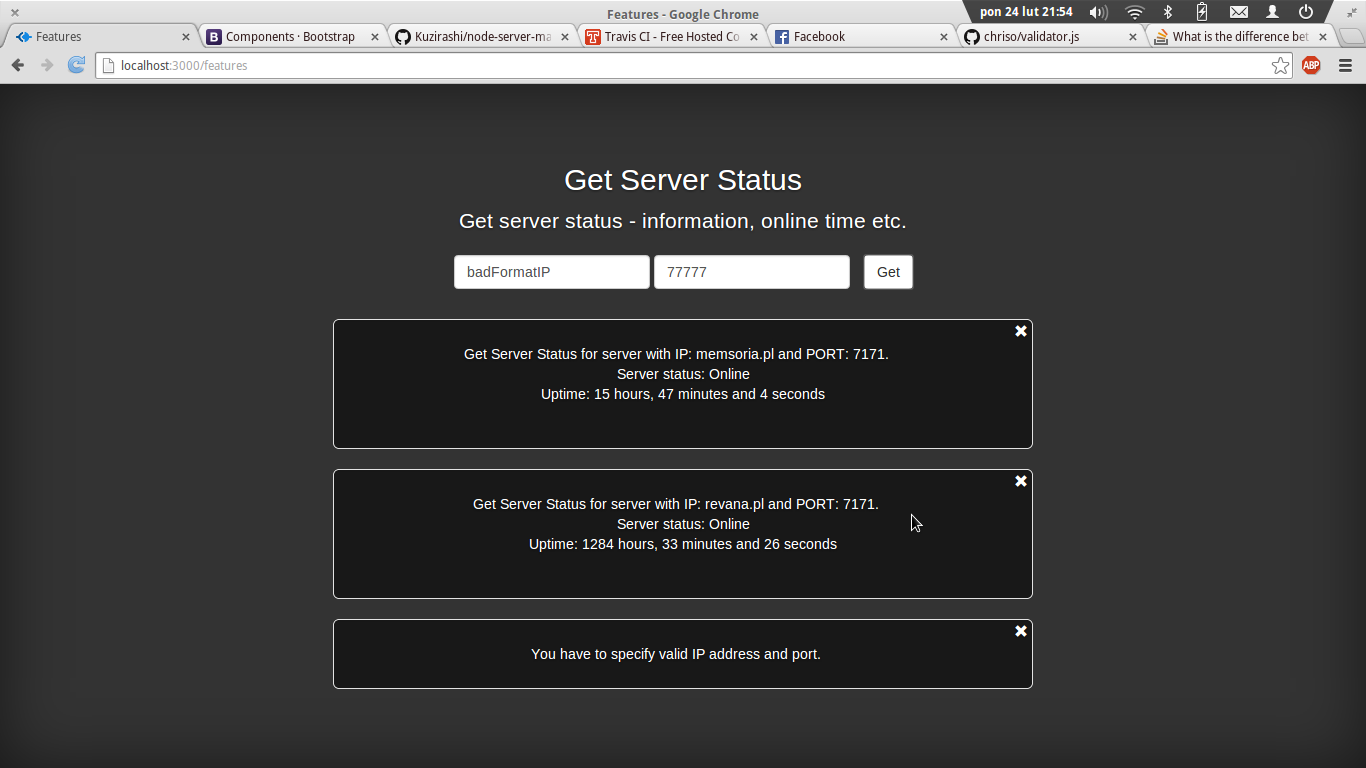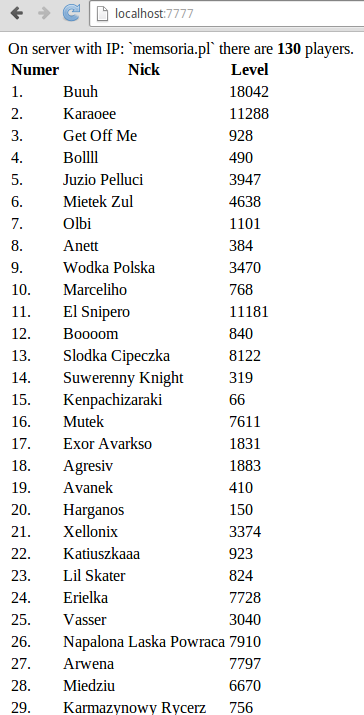Hi, I'd like to show you my application. I'm writing it in node.js, so it's something new and fresh compared to php/apache etc. Currently app doesn't provide many features but I've got lots of ideas and I'm trying to improve it every day. I decided to start project to learn more about new trends, technologies and to create something useful. Full application code is available at GitHub. Everyone can download and test this application, but you need node.js installed and it's not user friendly. I may host this in the future as long as I have memsoria.pl but at this moment I'm focused to make application better.
Screenshots(sorry for frames etc., it's just easier to post it like that):
a) Port 3000(application runs on two ports atm)
- Home

- Get Server Status

b) Port 7777
- Home

- Get Online Players List

I'm open to any suggestions, ideas, criticism etc. Have a nice day.
Screenshots(sorry for frames etc., it's just easier to post it like that):
a) Port 3000(application runs on two ports atm)
- Home

- Get Server Status

b) Port 7777
- Home

- Get Online Players List

I'm open to any suggestions, ideas, criticism etc. Have a nice day.
